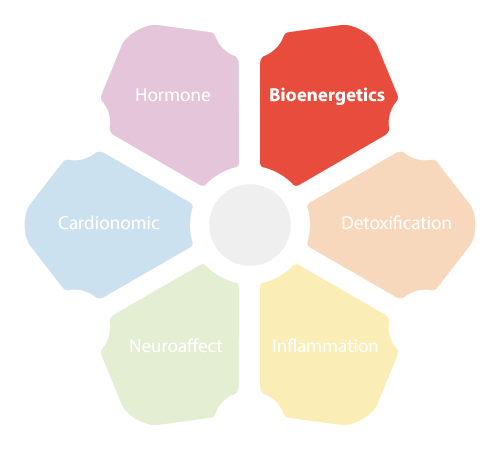 What if by changing your diet you could help prevent up to 11.6 million premature deaths while simultaneously aiding in saving the planet? That equates to preventing 19% to 23.6% of adult deaths every year. Would you do it? Scientists have created a new diet that could change your life and the world. The planetary health diet is getting quite a bit of publicity these days as the desire for wellness and sustainability are growing rapidly. People are doing their best to reach their optimal health with nutrition, exercise, and sleep routines, while also being proactive about saving the Earth with projects such as recycling, using reusable bags, and reducing waste. The planetary health diet could be what the world needs right now, taking both movements into consideration and creating a meal plan that not only provides optimal wellness, but also decreases your carbon footprint at the same time.
What if by changing your diet you could help prevent up to 11.6 million premature deaths while simultaneously aiding in saving the planet? That equates to preventing 19% to 23.6% of adult deaths every year. Would you do it? Scientists have created a new diet that could change your life and the world. The planetary health diet is getting quite a bit of publicity these days as the desire for wellness and sustainability are growing rapidly. People are doing their best to reach their optimal health with nutrition, exercise, and sleep routines, while also being proactive about saving the Earth with projects such as recycling, using reusable bags, and reducing waste. The planetary health diet could be what the world needs right now, taking both movements into consideration and creating a meal plan that not only provides optimal wellness, but also decreases your carbon footprint at the same time.
A global change in our food habits is very needed. With 3 billion people across the world malnourished, diet and food production issues need to be addressed and fast. Food production is driving climate change, increasing pollution, causing biodiversity loss, and overstepping many environmental targets, not to mention causing obesity, diabetes, allergies, heart diseases, and strokes.
Sustainable food production would produce a limited amount of emissions including methane and nitrous oxide. Methane is produced during the digestion process of livestock, and nitrous oxide is a gas released from pastures and croplands needed to feed the billions of people that inhabit our planet along with the livestock. To provide a healthy future for both our earth and its inhabitants, decarbonization of both the world's energy systems and food production must be implemented.
Scientists from around the world have developed the planetary health diet to improve and maintain wellbeing, while at the same time providing sustainable food production to keep the planet from further damage. The planetary health diet is giving our government, food producers, and individuals a starting point in which to work together to transform our health and food systems.
The key to a planetary health diet is cutting out red meat, reducing sugar consumption by half, and increasing the intake of nuts, seeds, fruits, and veggies. It is an ideal meal plan for those over 2 years of age, and it is believed to reduce many illnesses while providing safer food production mechanisms. The planetary health diet consists of a total calorie intake of 2500 a day, and decreases the daily consumption of dairy, animal protein, starchy vegetables, whole grains, sugars, and fats.
It is estimated that the population of the world will reach 10 billion people by the year 2050. With our current food production and eating habits, that growth is predicted to seriously exacerbate already existing problems with the planet and its people. Currently, we have 1 billion people who are living in poor conditions that are leaving them in hunger, and we have 2 billion people on the planet who are eating the wrong types of food for their health, leaving them with illness. Without any changes taking place, those numbers will only keep increasing, and not too long from now they will be causing drastically worsening conditions.
Doctors and professors specializing in food, diet, and environmental issues have come up with what they believe to be a global answer in the new planetary health diet. It consists of five strategies that people can use to enrich their diets in sustainable ways. These methods can cause a major shift in food production with strict rules being enforced for ocean and land use, a shift towards more varied crops, increased sustainability in agriculture, and reduced food waste.
 Forests and jungles all over the world such as the Amazon are being destroyed at alarming rates just to feed cattle or provide a space for them to graze. In the near future, we will plow through many of our sacred lands. The large numbers of cattle that now roam our Earth for food purposes are now responsible for approximately 14.5% of all the greenhouse gas emissions, more than all the exhaust that comes from our transportation. This number will only keep increasing if drastic changes in diet are not made.
Forests and jungles all over the world such as the Amazon are being destroyed at alarming rates just to feed cattle or provide a space for them to graze. In the near future, we will plow through many of our sacred lands. The large numbers of cattle that now roam our Earth for food purposes are now responsible for approximately 14.5% of all the greenhouse gas emissions, more than all the exhaust that comes from our transportation. This number will only keep increasing if drastic changes in diet are not made.
To stop this from happening, the World Health Organization and many other global groups have recognized the need for drastic measures to begin to be made, and in 2015 they initiated the Paris Climate Agreement which is aimed at reducing global warming. It recognizes the need for the world to decarbonize energy systems by reducing fossil fuels and transitioning to different forms of food production. Researchers have concluded that without the adoption of the planetary health diet, the goals of the Paris Climate Agreement will never be met.
The planetary health diet was designed to help both the body and the earth. Here is a breakdown of its benefits, beginning with the body. The diet requires fewer meats, less sugar, more fruits, vegetables, nuts, and legumes, and a decrease in daily caloric intake.
One of the measures in the planetary health diet recommends we consume less red meat or become “Reducetarians.” This is both wise for the body and the environment. Reducetarians are people who have committed themselves to consuming less meat regardless of the reason. The amazing part of this movement is that it is not an all or nothing approach. It involves consciously attempting to reduce red meat by participating in Meatless Mondays, Pasta Tuesdays, or maybe going vegan for the weekend.
Reducetarians can be considered to follow one of the healthiest diets in the world known as the Mediterranean diet. It consists of mostly plant-based foods with minimal meat, perhaps just 2 to 3 times per month, and lots of healthy fats such as olive oil.
Some of the benefits of consuming fewer meats are that it:
The truth is, eating meat is detrimental to our planet. The majority of the meat we eat comes from factory farms that practice very inhumane farming methods. In addition, the large amounts of grains that are used to feed the livestock could actually be used to end world hunger.
A plant-based diet can also really save you money! Vegan and vegetarian diets that are whole-food based are much cheaper than meat-based meals. Pasta, rice, and beans along with colorful fruits and veggies will save you tons.
Finally, and most importantly, eating less meat can add years to your life. People who eat more plant-based foods tend to get sick less often and live longer. Increasing the consumption of meat in your diet by 10% was shown in a study to lead to a 2% increase in death.
Most people are getting a tremendous amount of unnecessary and unhealthy sugar in their diets. The NIH, or National Institute of Health, has estimated that American adults are getting 15% of their daily caloric intake from added sugars alone, not including the natural sugars that are being consumed from foods like milk or fruit.
Consuming excessive sugar has been linked to:

Reducing sugar in your diet can help you avoid a multitude of health conditions in itself. When you replace sugary foods with healthy, whole foods, you are also providing your body with the essential vitamins and minerals that it needs and craves.
These tips can help you successfully reduce your sugar intake:
Cravings for sugar often cover underlying ailments. One of the earliest signs of the dysfunction of the metabolism system is a craving for sugar. It often goes unnoticed as it can easily be covered up by snacking throughout the day. Eliminating sugars from your diet is a great way to ensure the body is running efficiently.
According to the research included in the planetary health diet study, for most people, the consumption of nuts, fruits, vegetables, and legumes must be doubled. Fruits and vegetables provide nutrients that are vital for the health and maintenance of your body. Most are low in fat and calories and contain no cholesterol.
Eating a diet full of fruits, vegetables, nuts, and legumes is extremely beneficial to our health. Veggies such as sweet potatoes, white beans, tomatoes, beets soybeans, lima beans, lentils, and kidney beans are all rich in potassium, which can help in maintaining healthy blood pressure. The fiber from fruits and vegetables can reduce cholesterol, lower the risk for heart disease, and aid in functional bowel movements.
And these are only a few of the benefits. In addition, fruits, veggies, nuts, and legumes:
The planetary health diet advises people to consume 2,500 calories per day, which is slightly more than what the average person is eating daily. You will be consuming more calories as you are increasing your fruit, nut, and legume intake. These are a healthy source of calories for your body.
For those who suffer from chronic stress-based illnesses such as Adrenal Fatigue Syndrome or AFS, the planetary health diet is a great dietary regimen to follow. It closely resembles the AFS diet recommended for those whose chronic exposure to stress has left them with weakened adrenals.
 Since the body’s natural stress response system, known as the NeuroEndoMetabolic Stress Response or NEM includes all the body’s systems and organs, many who suffer from the stress-induced ailment of AFS are left with sensitivities that affect their entire body, and include food allergies and digestion issues.
Since the body’s natural stress response system, known as the NeuroEndoMetabolic Stress Response or NEM includes all the body’s systems and organs, many who suffer from the stress-induced ailment of AFS are left with sensitivities that affect their entire body, and include food allergies and digestion issues.
The planetary health diet consists of foods full of nutrients that can help the adrenals heal and the body regain its health. The healthier the food sources are, the easier it is for the body, through its Bioenergetic circuit, to carry out the chemical reactions and responses necessary to convert food into energy at a cellular level. A healthy diet will help your body reduce fatigue and inflammation among many other factors. Diet is beneficial in adrenal recovery, and a key to optimal living for everyone, and now we can see how it ties into saving ourselves and our planet.
People with adrenal fatigue often find themselves having to limit their diet due to increased food sensitivities and may find themselves heading towards a planetary health diet.
However, especially if you have other health conditions, it is important to note that no diet is universally good for everyone. The weaker the body, the more difficult it is to fit someone into a standard diet. In advanced stages of AFS, for example, the body tends to enter a catabolic state, and food assimilation becomes much less efficient. Dietary changes and new diet plans that are fairly easy to adapt to when you are healthy may cause adrenal crashes in a body that is weak. The risk increases as the body’s weakness increases. If this describes you, it’s best to talk to a professional versed in AFS before making major dietary changes.
Before beginning any new dietary regimes, it is always recommended to go over your goals with your health care practitioner to ensure you are meeting all your nutritional needs, especially if you suffer from any chronic ailments such as AFS. The body can become unbalanced when ill and require certain dietary needs during this time. The planetary health diet is generally considered safe but many people with AFS have severe digestive issues that require specific support.
Although there is no danger involved in the implementation of the planetary health diet for most healthy people, this recommendation can be shocking and difficult for the global community to agree on. It will require cross-governmental departments from all over the world working together, which can often be difficult, to say the least. Some countries are not able to grow certain crops or struggle with poverty and famine, while others have unhealthy foods heavily promoted to the general public.
Major structural changes will need to be implemented such as moving away from meat production, limits on fertilizers, and organizational changes in how farming is subsidized. The scientists responsible for the research behind the planetary health diet have come up with a report in which they make five suggestions:

The professionals in the field admit this is a very difficult goal to achieve, but they also agreed that it can and must be done.
Ensuring a healthy community, population, and planet requires a combination of strategies, global teamwork, and individual dedication. There will need to be major dietary and technology changes, reduced food waste, and improved food production. But it can be done. Starting with one person at a time and spreading the word, this way of eating can slowly become a new global agricultural revolution. Currently, we are experiencing an epidemic of obesity, malnutrition, poor health, environmental degradation, and poor farming policies. But with the right support, as we each make the changes available to us in our individual lives, we can experience an epidemic of health, nutrition, and prosperity for all people and our planet.
© Copyright 2020 Michael Lam, M.D. All Rights Reserved.
Yes, the planetary health diet and the AFS diet both consist of a high quantity of fruits, veggies, nuts, and legumes along with a decrease in red meats, sugars, and fatty processed foods. Both are beneficial diets for nutrients, healthy sources of fats, and good, absorbable proteins.
